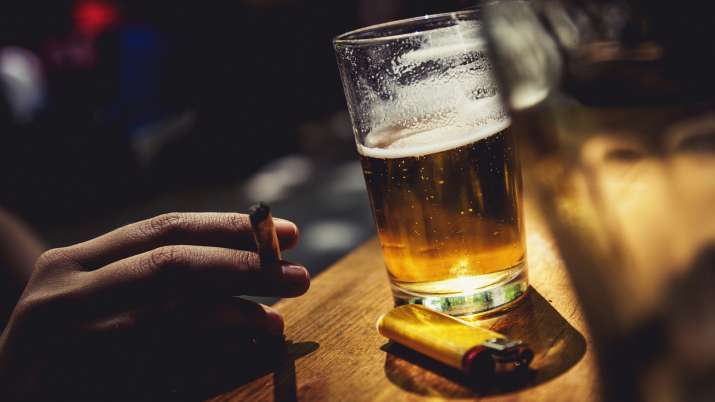KATHMANDU: A study conducted by the Nepal Health Research Council shows that the number of alcoholics and smokers has decreased in Nepal as the risk of coronavirus infection increased.
The study found that alcohol consumption and smoking declined by 10 and 12 percent respectively after the COVID-19 crisis loomed.
The council conducted a variety of investigations into 572 people who are recovered with coronavirus infection.
The study found that more than 35 percent of the patients recovered had symptoms of cough, fatigue and difficulty breathing within two to three weeks.
A study was conducted on the daily activities and socio-economic status of people infected with COVID-19 infection.
Out of the total population surveyed, 99 percent were found to have traveled. It is found that 69.1 percent and 29.9 percent had traveled within and outside the county, respectively.
Assessing the health status of those who recovered the coronavirus infection, 89.1 percent were in normal condition.
A total of 10.9 percent of the people had cold and weakness even during normal activities and had lost senses of smell and taste.
The research report states that patients with symptoms of COVID-19 as well as young people and adults can be sick for a long time.
Of the 552 people involved in the research, 70 were found to be suffering from chronic diseases such as diabetes, heart disease, asthma, etc.
Similarly, when assessing the mental state, 15.1 percent of the participants were sad on different occasions and had unnecessary thoughts about the outbreak of COVID-19 and 7.7 percent had negative thoughts about themselves and others.
Likewise, work anxiety was found in 21.4 percent, home anxiety in 19.2 percent and economic anxiety in 29.6 percent due to unemployment.
Participants complained that they did not experience any affection or love from relatives due to fear of COVID-19.
Assessing social health status, 48.3 percent of those cured felt social discrimination.
They have been found to have increased mental anxiety due to social abuse.
According to a few participants, unreliable news sources and social networks, including Facebook, were among the major causes of stress, making them more concerned than positive reports.
The study was conducted as per the directives of the Ministry of Health with the objective of assisting in the policy strategy to be taken in the coming days by studying the status of COVID-19 and the statistical analysis so far, Dr. Pradeep Gyawali informed.









Comment